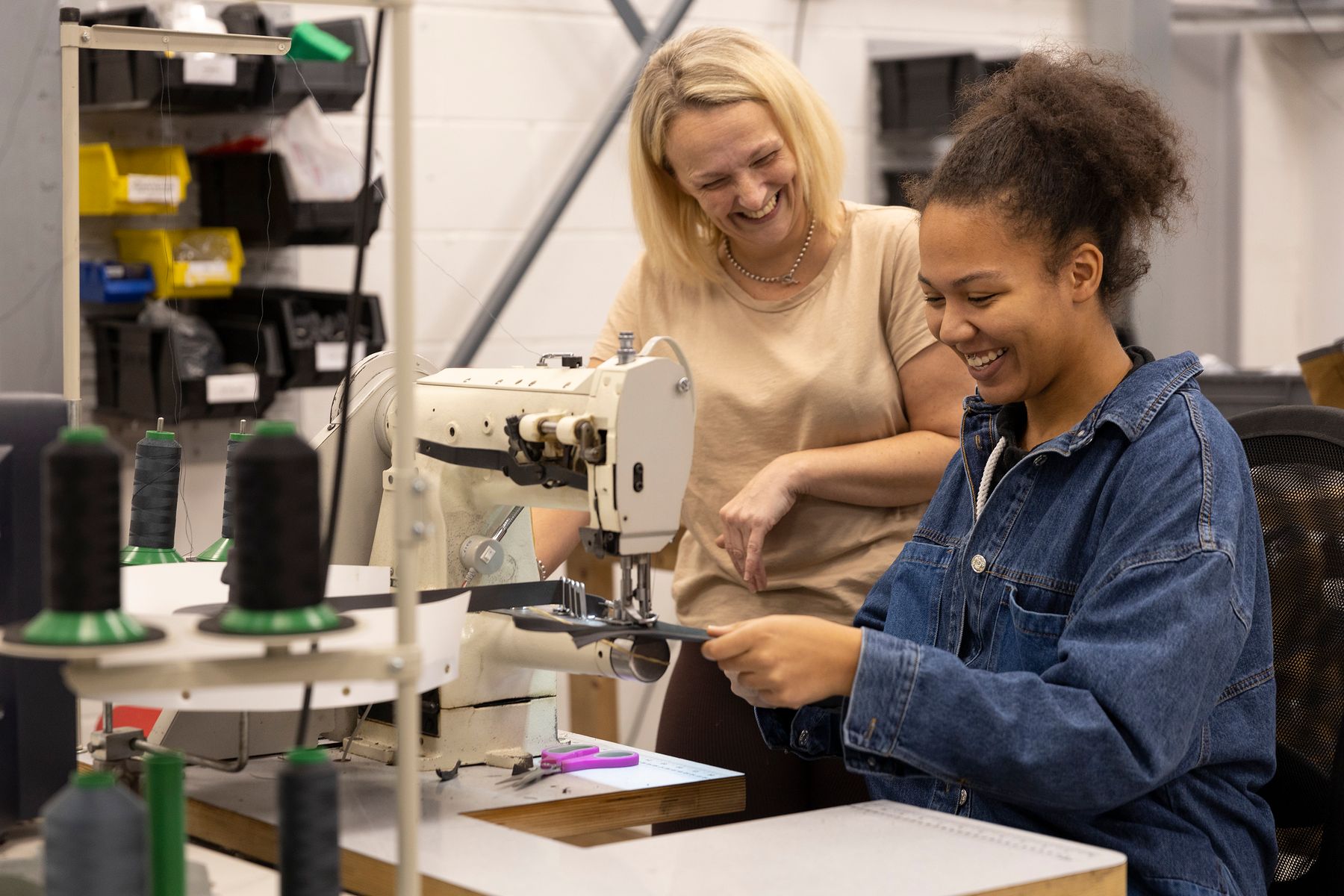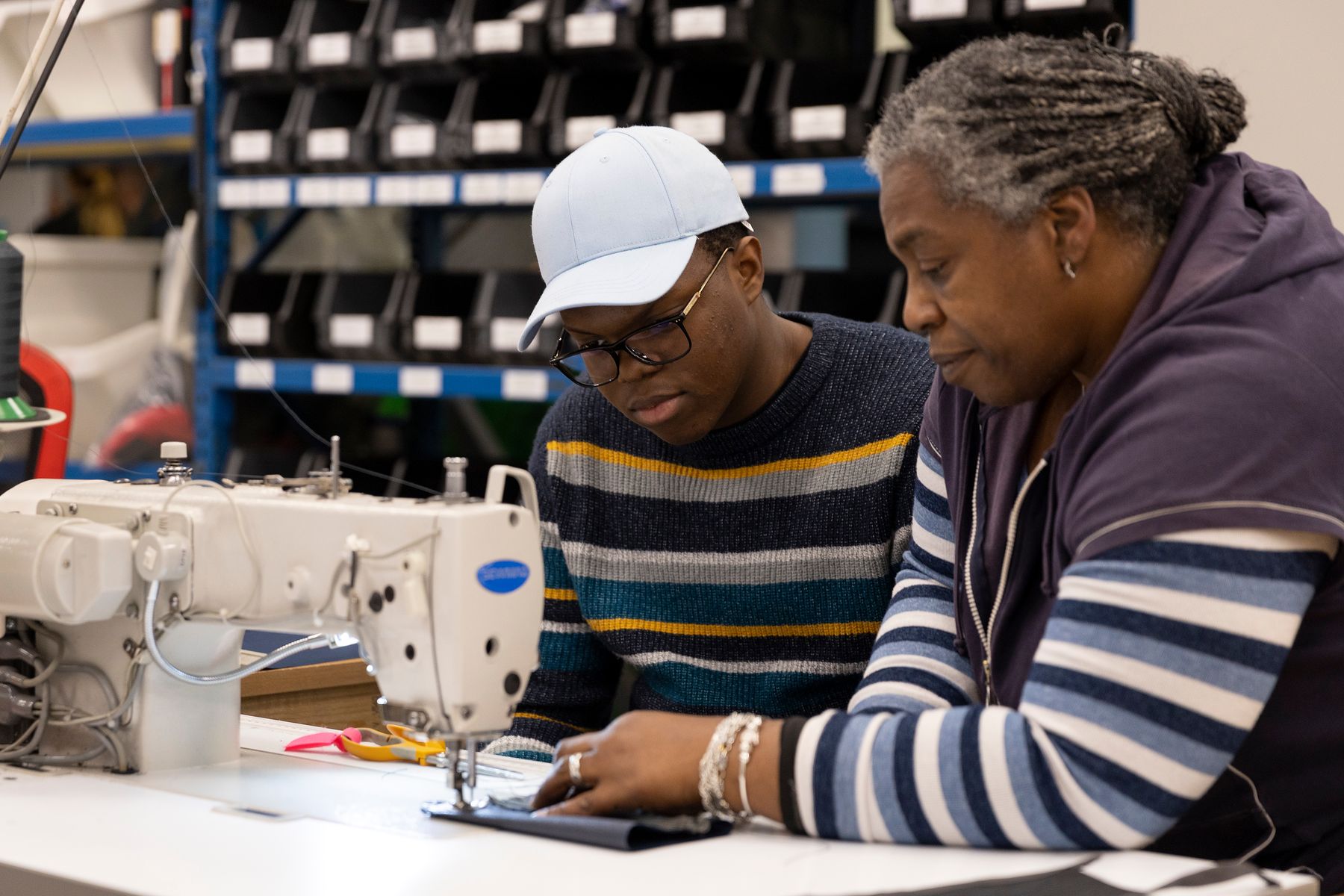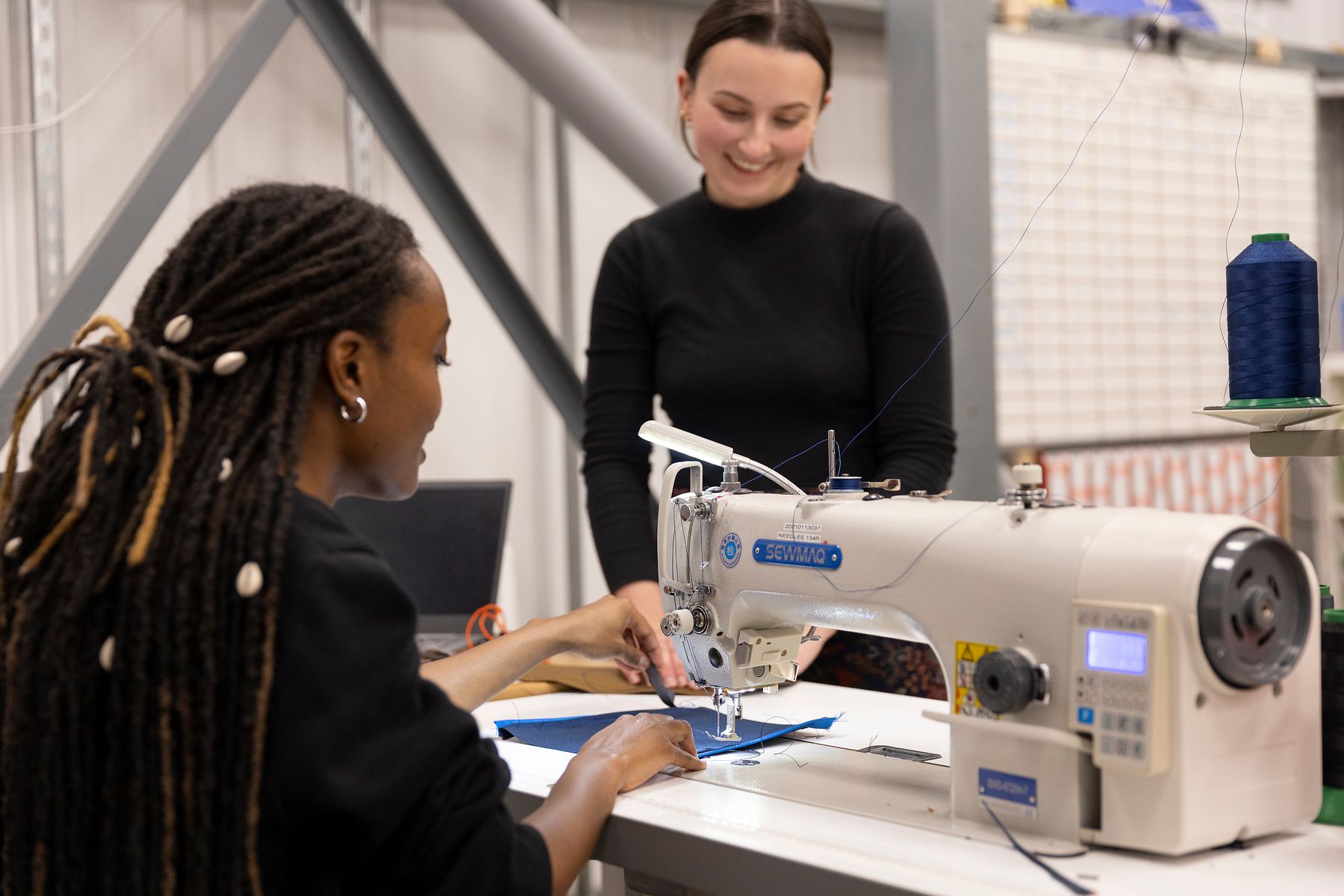Sustainability in Enterprise - Alpkit
Product design students at NTU have helped Alpkit cut the carbon footprint of their bestselling tent by 31% - and accelerated the brand’s focus on data-driven sustainable design.


Alpkit are an award-winning outdoor and bike brand born out of a passion for the outdoors. The company, which is based on the edge of the Peak District in Derbyshire, was founded in 2004 by friends Col, Nick, Jim and Kenny, and has gone on to open retail stores around the UK and sell online to around 70 countries worldwide.
Alpkit have always been focused on sustainability and have been certified by B-Corp since 2021 – a global scheme measuring a company’s entire social and environmental impact. They were also the first outdoor brand to publish a comprehensive sustainability report. The company donates 1% of its sales to the Alpkit Foundation, a charity organisation established by the founders to support grassroots projects improving education, environment, diversity, mental health and participation in the outdoors. Since 2015, the Alpkit Foundation has helped 40,000 people and 2,000 projects.
Alpkit are also committed to creating long-lasting, lower-impact products that are repairable and recyclable, including lower carbon products. To help with this, the company joined NTU’s Sustainability in Enterprise project, which is part-funded by the European Regional Development Fund (ERDF).
Through the project, Alpkit have worked with fifty-four BSc (Hons) Product Design students and seventeen international exchange students (enrolled onto the European Project Semester – EPS) from NTU’s School of Architecture, Design and the Built Environment, to calculate the carbon footprint of their best-selling Soloist tent and make it more sustainable. Alongside this, they have also worked with NTU’s commercial product design consultants to reduce the waste and carbon impact of their best-selling BruKit stove.

NTU Lecturer, Karen Winfield led the student project and explained: “Working as product design consultants, the students visited Alpkit and then carried out a Life Cycle Analysis (LCA) of their Soloist tent, taking into account the extraction and creation of materials, the manufacturing process and transport to store, use, repair and maintenance, and what happens at the end of the tent’s life.
“This enabled the students to calculate the Soloist’s overall carbon footprint, and identify which parts had the greatest carbon impact. Next, the students worked in small groups to explore how they could make the Soloist more sustainable by reducing the tent’s carbon footprint. Working with a B-Corp company like Alpkit was a great way for the students to learn more about sustainable product design.”
Alpkit’s Senior Product Developer, Rowan Williams shared how the company have benefited from the support on offer. “As a small team, having the time and resources to work on product redesign projects is one of our biggest challenges. Working with NTU’s student consultants gave us access to invaluable LCA tools and an extensive knowledge base we don’t usually have access to, because the students are learning about all kinds of products and materials. The focus in the outdoor industry has mainly been on making products as light as possible, whereas the students thought outside the box.
“Focusing on our Soloist tent enabled us to explore the data-driven redesign of one of our best-selling products, which was really exciting and got us into the nitty-gritty of sustainable design and the product life cycle. At the end of the project, we had 21 innovative ideas to choose from.”
The students’ ideas included redesigning the tent to decrease the amount of materials needed, using recycled instead of virgin materials such as recycled nylon yarn, and incrementally redesigning individual parts such as tent pegs and pole hubs.
What we’re doing now

Rowan continued: “The students’ LCA data showed us which tent components have the biggest carbon footprint, such as aluminium poles. We’re currently working through the changes we’re looking to make from the students’ ideas, plus a couple of our own ideas, developed off the back of the students’ LCA data and presentations.
“Using aspects from every student project, we’re exploring switching to recycled materials, eliminating waste in production, redesigning the pole hubs to reduce weight and material use, tweaking the tent’s dimensions and structure, improving our packaging, and prolonging the Soloist’s usable life with improved care instructions and repair kits.”
The impact
Product design students at NTU have helped Alpkit cut the carbon footprint of their bestselling tent by 31% - and accelerated the brand’s focus on data-driven sustainable design.

“If all the changes are made and approved they would cut the carbon impact of our Soloist tent by 31% and reduce our annual carbon emissions by 16849.8kg. On top of this, we’re also looking to redesign our Soloist tent based on an idea presented by one of the student groups, which moved the door to the centre of the tent, decreasing the amount of materials needed overall.
“Having the LCA data to back up our sustainability plans means we can make redesign changes sooner, bring our manufacturers onboard, and take the ideas into our other tents and products.
“I went to NTU myself so I knew the students’ ideas would be of a high standard but I was still blown away by the level of detail and quality, especially as they only had one week to produce their reports. The students explored everything, from tweaking the shape of the tent, increasing its liveable space while reducing the materials used, to calculating the cost versus carbon impact and benefits of switching to recycled materials. For example, they found that switching to recycled nylon yarn would cost us around 6%-7% more, but reduce our carbon footprint by 15%.”
From a student perspective, the project provided a real example of sustainable design in action. Student consultant, Katie Smith explained: “Sustainability will always be crucial when designing a new product in the future. This project has shown just how complicated this process can be. However, the experience ensures that I will have a greater understanding of the challenges and process of calculating what impact a product will have on the environment. It has also opened my eyes to the importance of sustainability and the different careers available as a designer.”
As part of the Sustainability in Enterprise project, Alpkit has also worked with NTU’s commercial product design and research group, Design Matter to carry out a life cycle analysis of their best-selling BruKit stove. Rowan shared: “The Design Matter team carried out an LCA to identify the weight and carbon footprint of each component in the stove and suggested design changes to lower its carbon footprint and improve sustainability.
“As a result, we’re replacing the stove’s insulating neoprene sleeve with cork, a high quality insulator which is less toxic to produce. We’re also making a few other design tweaks to the stove, based on Design Matter’s recommendations, including reducing the volume of plastic in the product and removing part of the assembly. Overall, these changes will lower the BruKit’s carbon footprint by 19% and its weight by 200g. That’s a significant reduction, because outdoor products made for carrying are already designed to be super light.
“Thanks to NTU, the Soloist and BruKit will both be more sustainable in 12-18 months’ time, but it doesn’t end there. Now we have the LCA data from both projects, we can cross reference it and make rough estimates about the carbon footprint of other products, enabling us to carry forward the lessons learnt and explore data-driven sustainable design throughout the entire Alpkit range.
“The connection to education is invaluable and we’re working on another student project with NTU in November, focusing on our rucksacks. If we’re able to help the next generation of product designers learn about sustainable design while benefiting from their innovative ideas then that’s great – it’s all about give and take.”
How to access the support available
Find out more about the broad range of support that NTU is providing to local businesses:
- Email: workingwithyou@ntu.ac.uk
- LinkedIn: NTU Business and Employers
- Twitter: NTU Business and Employers